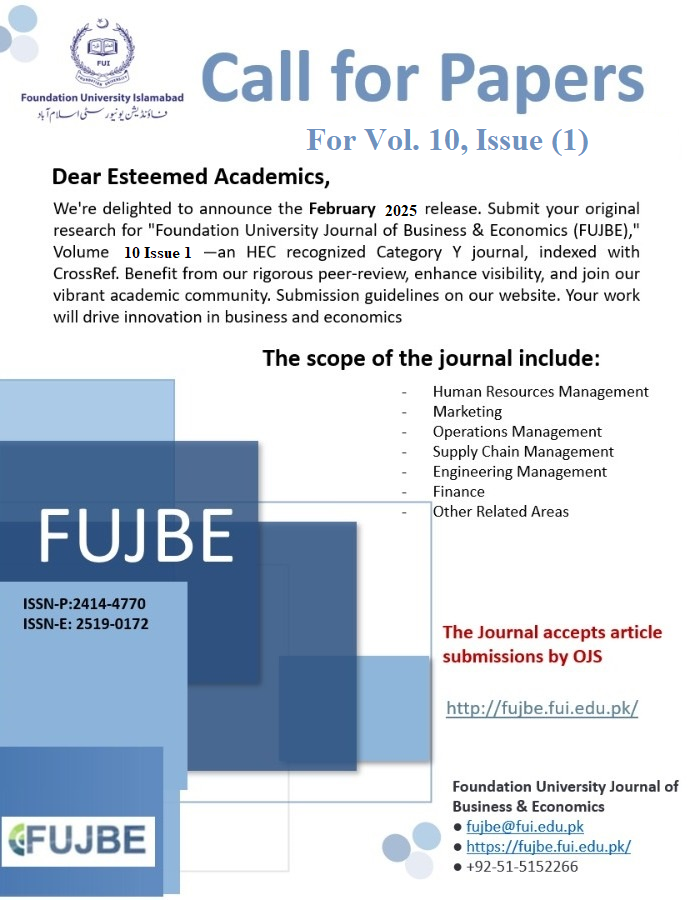Financial Effects of Expanding Tax Net to Agricultural Income in the Underdeveloped Economy
DOI:
https://doi.org/10.33897/fujbe.v8i1.703Keywords:
Agricultural Income Tax, Welfare, Inequality, Computable General Equilibrium Model, Sales Tax, UtilityAbstract
The objective of this paper is to study the effects of the Agricultural Income Tax on
Welfare of the Household as well as Income Inequality in Pakistan. The analysis is
performed to examine the implementation of the tax in the country. The CGE model
was used to analyze the various economic effects of the proposed tax on agriculture
income. It also aims to analyze its benefits at the household and macro levels. The study
was conducted to determine if the implementation of the tax on agricultural income
would be feasible in Pakistan. The variables that were analyzed in this study included
the implementation of the tax on income from agricultural sector`s households and the
reducing the rates of sales tax. The results of the study revealed that the implementation
of the tax on agricultural income would have beneficial effects on the country's
economy-wide welfare indicators. The paper also noted that the implementation of the
tax on agricultural income could help improve the country's household utility and
economic indicators at the micro level.



